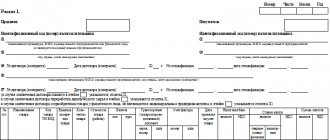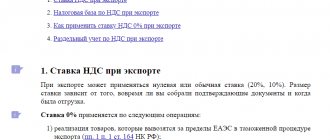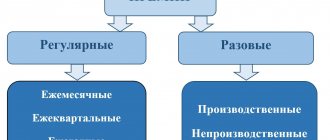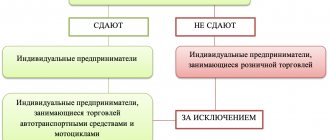Travelers often become familiar with customs rules when going on a tourist trip by bus, train or plane. Motorists who travel to Kazakhstan with their own car or work for a company that deals with transportation need to get acquainted with the activities of customs in more detail.
In Kazakhstan or any other country in the world, customs is usually understood as government agencies that control the supply of goods to the country, and also collect duty payments for the import of certain goods into the republic.
It is worth carefully studying the list of customs rules, including possible restrictions and prohibitions. Some products can only be imported by paying customs duties.
The customs office of Kazakhstan is located at the state border, where special border checkpoints are equipped:
- at railway stations;
- automobile checkpoints;
- airports;
- sea and river ports.
Freight and passenger flows between Russia and Kazakhstan
Everyone who crosses the international border of Kazakhstan or fills out a customs declaration has to communicate with customs at the border.
Kazakhstan, together with Russia and Belarus, are part of the Customs Union, therefore all rules regarding the import or export of certain products are regulated by special rules.
Customs rules for importing currency
On the border of Kazakhstan with Russia the following currency regulations are allowed:
- Only adult citizens of a particular country can import goods.
- You can carry cash and non-cash funds with you.
- There are no restrictions on the amount that a foreigner wants to bring with him. You only need to declare the import amount if it is more than 3 thousand US dollars. There is no need to pay VAT when importing the specified amount of money.
There are certain restrictions on how much goods imported into Kazakhstan can cost. From January 1, 2021, new rules apply. The total weight of goods should not exceed 25 kilograms, which, when converted into monetary equivalent, should not exceed 500 euros.
This information is relevant for those who cross the border by land (by car, bus or train).
Import and export of goods: algorithm of actions for an entrepreneur
Atameken asks businesses to pay attention to the rules for the import/export of goods included in the List of Exemptions
The Department of Economic Integration of the NCE RK “Atameken” provides clarification on the use of electronic invoices by domestic taxpayers selling goods from the List of Exemptions.
As is known, due to the entry of the Republic of Kazakhstan into the World Trade Organization, from January 2021, reduced import customs rates are applied within the WTO for 1,347 commodity items (58 commodity groups out of all 97 commodity groups within the Commodity Classification of Foreign Economic Activity, including: agricultural products, light industry, vehicles, etc.) included in the List of Exemptions.
At the same time, as reported by the Department of Economic Integration of the NCE RK “Atameken”, in 2021 the number of goods included in the List of Exemptions will increase to 2,175 commodity subheadings, brought into line with the new Harmonized System for Description and Coding of Goods, which is used in the EAEU with January 1, 2021.
Compared to last year, the new draft list includes an additional 10 product groups, such as wood pulp, recycled paper or cardboard, products from the printing industry, base metals, etc.
At the same time, as noted in the Department of Economic Integration of the National Chamber of Entrepreneurs, the majority of the “new” goods are ferrous metals and products made from them, mechanical and electrical equipment, medical devices and instruments, etc. As was the case last year, duty rates on goods are being reduced, generally from 1% to 5%.
Currently, the Decision of the Council of the Eurasian Economic Union on approval of the List of exemptions of the Republic of Kazakhstan for 2021 is at the approval stage.
At the same time, taking into account the fact that Kazakhstan is also a member of the Eurasian Economic Union, our country has undertaken obligations to prevent the export of goods from the List to the territory of other EAEU member states, the NPP notes.
In order to ensure the implementation of these agreements with our partners in the Union, an accounting system was created in Kazakhstan based on the issuance of electronic invoices, ensuring the export of goods from the List outside the Republic of Kazakhstan, provided that such goods were imported into Kazakhstan at the rate of the Unified Customs Tariff EAEU.
An additional condition for the export of goods included in the List into the territory of the Union member states, but imported at the EAEU CCT rates, is the presence of a shipping document.
The Ministry of Finance of the Republic of Kazakhstan has made changes to the regulatory framework of the Republic of Kazakhstan, providing for the registration of two shipping documents: a customs declaration and an electronic invoice when carrying out mutual trade within the Eurasian Economic Union.
In this regard, the Department of Economic Integration of the NCE RK “Atameken”, together with the authorized state body represented by the State Revenue Committee of the Republic of Kazakhstan, at the end of 2015 and throughout 2021, carried out large-scale information and explanatory work with the business community of the Republic of Kazakhstan on the conditions of the Republic of Kazakhstan’s accession to the WTO, rights and responsibilities of importers, manufacturers and carriers, training seminars on the use of electronic invoices, round tables, etc.
It is worth noting that as a result of the work carried out, a wide audience directly involved in the trade and production activities of goods from the List of Exemptions was reached.
In this regard, we again draw the attention of entrepreneurs to the following rules for the import/export of goods included in the List.
— Algorithm of actions for an entrepreneur when importing/exporting goods from the List:
1. When importing goods from the List, it is necessary to fill out a customs declaration indicating the rate at which the goods are imported (CTT or WTO);
2. When selling goods from the List, it is necessary to issue an electronic invoice;
3. When exporting goods from the List to the territory of the EAEU countries, it is necessary to certify paper copies of the customs declaration confirming import at the EAEU CCT rates and an electronic invoice by the territorial state revenue authorities of the Ministry of Finance of the Republic of Kazakhstan.
— When exporting goods from the List, but produced in Kazakhstan, to the territory of the EAEU countries, you must have:
1. Availability of a certificate of origin of goods, form ST-1;
2. Availability of an electronic invoice;
3. Certification of ST-1 and ESF by territorial bodies of state revenues of the Ministry of Finance of the Republic of Kazakhstan.
— When importing goods subject to veterinary control and in the event of further export to the EAEU countries of such goods or products made from them:
1. Import goods subject to veterinary control according to uniform forms of EAEU veterinary certificates;
2. When importing such goods, if they are included in the List of Exemptions, pay the rates of import customs duties according to the EAEU CCT;
3. To export goods included in the List (imported according to EAEU standards) into the territory of the EAEU countries, you must have a veterinary certificate, as well as its presence in the Unified Automated Control System (UACS).
The Department of Economic Integration also draws attention to the fact that all information, as well as presentation materials on the tariff obligations of the Republic of Kazakhstan as part of our participation in the WTO, as well as the principles of working with electronic invoices are posted on the official website of the Chamber - palata.kz in the WTO section - Tariff obligations RK in the WTO.
In general, according to the obligation to issue an electronic invoice in accordance with the Tax Code of the Republic of Kazakhstan, starting from 2021, ESF is issued by taxpayers who are authorized economic operators, customs representatives, customs carriers, owners of temporary storage warehouses, owners of customs warehouses in accordance with the legislation of the Republic of Kazakhstan on customs.
The second group of taxpayers who are subject to the obligation to issue ESF are importers and manufacturers selling goods included in the List of Exemptions and approved by Decision of the Council of the Eurasian Economic Commission No. 59 of October 14, 2015.
In relation to other groups of domestic taxpayers, in accordance with the norms of the Tax Code of the Republic of Kazakhstan, the issuance of ESF is provided from January 1, 2021 - for large taxpayers and from January 1, 2021 - other VAT payers.
If you have any questions related to the circulation of confiscated goods, please contact the Department of Economic Integration of the NCE RK “Atameken” by phone. 8 (7172) 919 373 or send questions by email
The draft Decision of the EAEU Council on WTO rates can be found here.
Import of alcohol and cigarettes
Alcohol and alcohol products may be present in the bags of travelers. But you just need to comply with the established restrictions on the import of goods of this kind.
The standards for alcoholic products imported into the republic allow all adult passengers and travelers to carry the following quantities of products:
- Three liters of alcohol (no duties).
- Customs duties begin to apply if a person wants to bring two more liters of drinks. But for each lita you will have to pay 10 euros.
- It is prohibited to transport more than five liters of alcohol per person. It is prohibited to import more alcohol than one person from Russia to Kazakhstan. You should not neglect such rules so that the border guards confiscate the excess from the entering person.
There is no need to pay import VAT to bring other types of goods:
- 15 cigars;
- one kilogram of tobacco;
- 1 thousand cigarettes;
- one hundred liters of gasoline;
- 150 liters of diesel fuel.
Watch the video for Russian customs regulations.
Question
Small business LLP, which applies a special tax regime based on a simplified declaration, plans to import goods from Russia in the second half of 2021.
Does a LLP have the right to take advantage of the exemption rule for micro and small businesses from paying income tax for a three-year period?
Healthy
- Small businesses are exempt from taxes for 3 years;
- Does foreign economic activity (FEA) deprive one of the right to tax exemption for the entire three-year period or only for the period in which the import/export operation was carried out?
- What types of activities are exempt from taxes and social payments on wages from April 1, 2021;
- Exemption of business from taxes on salary, postponement of deadlines for the Federal Tax Service and other amendments in the state of emergency
According to the Law of the Republic of Kazakhstan dated December 28, 2019, which amends the Law of the Republic of Kazakhstan dated December 25, 2021, according to which the latter is supplemented with Article 57-4.
The article indicates the types of activities that are not subject to the exemption from income tax. In this regard, please provide clarification regarding the conditions for applying foreign economic activity: Is the import of goods from the territory of the EAEU countries a foreign economic activity that does not provide grounds for the application of the norm for exemption from income tax?
Rules for importing products
It is allowed to import food, juices and waters, jewelry, personal belongings, items and things needed at home. The number of such objects should be such as to satisfy the individual needs of a person.
The list of mandatory declaration at the customs of Kazakhstan includes the following goods:
- It is allowed to import weapons (of any kind), explosives, ammunition, drugs, poisons and poisonous preparations, medicines, and pharmaceutical products from the Russian side, provided that all necessary documents are available.
- Imported goods also include substances that are included in the group of radiation and psychotropic substances.
- Goods subject to excise taxes.
- High frequency devices.
- Jewelry and metals.
- Goods for doing business in Kazakhstan.
Customs rules for individuals
When importing from the Russian Federation to Kazakhstan, goods that are included in the duty list are also subject to import.
At the border with Kazakhstan, first of all, a customs declaration is filled out, and then VAT is paid. Thus, if you have the financial means, you should not throw anything out of the bag, you just need to be prepared for the fact that you will have to pay a fee.
Food products imported from Russia include any vegetables, fruits, tea and coffee, the amount of which exceeds 10 kilograms per person. It could also be salmon/sturgeon caviar.
You cannot import things in large quantities, but you are allowed to transport more than 2 items of each type of clothing or shoes. These can be things of the same size and style.
Export to Kazakhstan instructions
Export to Kazakhstan. Step-by-step instruction
The general procedure regulating export operations is established by Federal Law dated November 27, 2010 No. 311-FZ “On customs regulation in the Russian Federation.”
The Republic of Kazakhstan is an important trading partner of the Russian Federation and ranks 2nd among the CIS (after Belarus) and 10th among the rest of the world.
The length of the Kazakh-Russian border is 7,000 km, which means there are many options for fast and inexpensive delivery of various goods from Russian regions, which ultimately contributes to the specifics of active trade. At the same time, there are a number of bilateral agreements that help simplify the process of documenting exports to Kazakhstan.
The basis of Russian exports to Kazakhstan are:
- Mineral products are mainly fuels;
- Chemical industry products;
- Metals and products made from them;
- Products of plant and animal origin;
- Food products;
- Various automobile and cargo transport;
- Wood, pulp and paper products;
- Textiles, footwear;
- Various industrial products.
Making a deal
The execution of an export transaction is carried out according to the accepted scheme, which is identical for all EAEU states. To import goods into the Republic of Kazakhstan for companies from the Russian Federation, the following types of documents are required:
- Foreign trade agreement
. On the basis of which goods are imported. The contract must be drawn up correctly, excluding any inaccuracies and corrections, all details and other essential points must be indicated legibly; - Application for export of goods and payment of VAT for import by the buyer
. A visa for this document from the tax service is very important. Moreover, the value added tax itself must be paid to the budget before the 20th of the next month. The exporter must have a copy of this form in his hands. - Transport documentation
. Export of goods from Russia is impossible without appropriate documentary evidence. This can be a waybill, UPD, which must be signed by the driver, and indicate the number of the car on which the goods were transported. - Other required documents.
Depending on the production area, additional licensing, certification or permitting documents may be required. These can be certificates of conformity, documents confirming safety: phytosanitary, veterinary, etc.
VAT
When selling goods within the Customs Union, a special procedure is in effect, regulated by the above legislative acts. According to Article 2 of the CU Agreement, when selling goods within the CU, subject to documentary confirmation, a zero VAT rate is applied.
Instructions
When shipping goods to Kazakhstan, a consignment note and invoice are drawn up, indicating the VAT rate of 0%. There is no need to mark these documents with the tax office. If previously, VAT on the shipped goods was offset, it must be restored. The VAT amount can be deducted, or VAT can be submitted for reimbursement only after the fact of export has been confirmed.
In order to confirm export, it is necessary to collect a complete package of documents for export shipment. The package of documents should be collected no later than 180 calendar days from the date of shipment. The date of shipment is the date the document is issued to the buyer or carrier.
You will need to collect the following documents:
- Agreement (contract) on the basis of which the goods were shipped;
- Application for the import of goods and payment of indirect taxes in the approved form;
- Bank account statement confirming the transfer of the corresponding amount according to the contract;
- Invoice with zero VAT rate;
- Packing list;
- Transport and shipping documents confirming the export of goods;
- Agreement with the transport company with attachments;
- Completed tax return. For this operation, Section 4 or 6 of the VAT declaration is completed. When filling out, you should indicate the export transaction code:
- if exported goods within the country are subject to VAT at a rate of 18% - 1010406;
- if exported goods within the country are taxed at a rate of 10% - 1010404;
Application.
Return mechanism
- It is necessary to complete and submit a declaration to the tax authority. It is important that there are no errors in the document. Otherwise, firstly, VAT will not be returned when exporting to Kazakhstan, and secondly, there is a risk of receiving a fine;
- Waiting for a desk check. It is carried out by an authorized employee of the tax authority.
- Return of funds to the account based on the results of a desk audit.
The VAT refund process may take 3-5 months.
It is important to know
All foreign trade agreements between the Russian Federation and the Republic of Kazakhstan are mostly concluded in US dollars. Accordingly, export relations are affected by the state of the international market, therefore, as soon as the US dollar undergoes certain changes, this is reflected in the turnover of goods between Russia and Kazakhstan.
It is necessary to take into account the fact that almost all goods that are sent to Kazakhstan - 90% - are those that have a dual purpose. In this case, it is necessary to conduct additional examination. Its necessity is explained by the fact that it is necessary to confirm that there is no need for additional licensing. It is desirable if confirmation of a 0 VAT rate for export to Kazakhstan is carried out, although it is not mandatory. If there is no such conclusion, problems may arise at the border.
To make it clearer, the dual-use goods that Russia exports to Kazakhstan include those that are used for civilian purposes, but can also be used to create military weapons. Most often this is equipment, raw materials, and individual information resources of a scientific and technical nature. Such goods are additionally subject to export controls. For this purpose, a special commission has been created in Russia.
Video and audio equipment
You can carry for an additional fee cameras, tape recorders, video and audio players, computers, household and office equipment, electrical items - kettles, hair dryers, curling irons. The list of imported items may be reduced under the influence of certain circumstances, sanctions or fines.
It has a huge impact on the fact that imported goods, including cars or animal meat, have compliance with the requirements of the Customs Union and national ones, i.e. Kazakh. An import ban may be imposed in the event of the spread of infections, diseases, or microbes.
List of prohibited goods
While there is a huge list of permitted items that a person can take with him to Kazakhstan, there is also a rather impressive list of prohibitions on products.
In particular, it is prohibited to import psychotropic drugs or drugs, medicines with narcotic substances, weapons of mass destruction, as well as materials that can help create them, into the republic through customs.
The following types of goods are also strictly prohibited:
- Materials – printed or artistic, which are intended to promote war, racism, xenophobia, violence, undermining the foundations of the state, a call for uprising or revolutionary action.
- Prohibited pornographic materials.
- Soil, soil or plants in it.
- Microbes, viruses, infections that can cause diseases, pandemics and epidemics.
- Insects, mites, fungi, damaged plants and trees.
- Products under quarantine supervision and imported from Russia or other countries to Kazakhstan.
Rules for the export of currency and goods from Kazakhstan
It is prohibited to export more than 10 thousand US dollars or national currency in the same monetary equivalent from Kazakhstan. Such requirements are also established for Kazakhs who travel to Russia. In this case, you need to contact the customs office so that they can issue a certificate of the legal origin of the currency.
Also, the following groups of goods cannot be exported from Kazakhstan:
- military equipment and weapons;
- equipment;
- ammunition;
- weapons of mass destruction;
- objects of art and antiquities, historical and artistic artifacts that are protected by the government;
- rare minerals, jewelry;
- rare animals and plants;
- saiga horns;
- drugs and psychotropic drugs;
- canceled securities and shares;
- anti-Islamic literature, photos and videos;
- materials that discredit the work of state authorities and the government of Kazakhstan.
This list can be expanded if the government decides to prohibit the presence of certain items, food and things on the territory of the republic.
Russia sells more products to Kazakhstan than it buys. Infographics
Russia sells food products to Kazakhstan 3.5 times more than it buys. prepared an infographic about the main goods that these countries supply to each other.
Kazakhstan's exports to Russia in January-May 2021 amounted to $2.15 billion, which is 2.4% less than in the same period in 2018.
The list of main export goods from Kazakhstan to Russia mainly consists of raw materials. Thus, domestic enterprises supplied flat rolled iron to Russia for $297.4 million, iron ores for $223.4 million, food products for $160.5 million, copper ores for $157.7 million and natural uranium for $131.2 million.
Precious metal ores, ferrous metal products, coal, natural gas and zinc were also sold to Russia.
As for imports from Russia, this figure exceeded 70% of the total trade turnover between the countries and amounted to $5.06 billion in the first five months of 2021. This level is 1.9% higher than the same period in 2021.
The list of Russian goods sold to Kazakhstan included ferrous metals and products made from them ($726.6 million), food products ($562 million), plastic products ($223.7 million), cars ($152.2 million) and natural gas ($130 million).
Kazakhstan also purchased from Russia railway cars, petroleum products, paper, wood products, clothing, car parts, furniture and gold.
In general, trade turnover between the countries for the reporting period of 2021 amounted to $7.2 billion.
According to business analyst at the Center for Applied Economics Research Dias Kumarbekov , all of the above shows that the weakening of the tenge against the ruble is not so much the result of external economic factors, but rather the result of the regulator’s internal efforts to maintain the status quo for reasons known only to him.
“There is a decline in exports to Russia and an increase in imports from Russia, while economic theory says that a cheaper currency relative to a trading partner increases demand for exports and reduces imports. Objectively, at the moment there are no persons for whom the strengthening of the ruble against the tenge would be beneficial. The growth of Russian imports, as well as their rise in price, leads to an increase in internal inflation in Kazakhstan, a decrease in the purchasing power of the population, which, in turn, only increases the distrust of the population and business in economic policy,” Kumarbekov noted in a conversation with.
The interlocutor also added that Kazakhstan has greater investment attractiveness than Russia.
“On the Kazakh stock exchange, the tenge to ruble exchange rate updates its 21-year historical high at 6.10 tenge. If we compare the rate of interest cover in Kazakhstan and Russia, we can see that in Kazakhstan it is higher, that is, it has greater investment attractiveness,” Kumarbekov said.
Let us recall that analysts previously interviewed spoke out about the strengthening of the ruble and its impact on Kazakhstan. Despite their opinion that the rise in the Russian currency will not have a significant impact on the domestic economy, experts still do not rule out an increase in food prices, since Russian goods are widely represented on the shelves of Kazakh stores.
Other infographics
Reproduction of material and infographics by other media is prohibited.
Customs changes 2020-2021
Over the past few years, the government of the country has been reducing duties on the import of goods, which is associated with accession to the WTO and the EAEU. Low tariffs are set for fish and meat, dairy and pharmaceutical products, agricultural goods, machinery, and equipment. Entrepreneurs who import must pay the rates established in the Customs Union. As a result, goods that are purchased at low tariffs end up in Russia.
What changes have occurred in the Russian customs code by 2021, watch the video.






